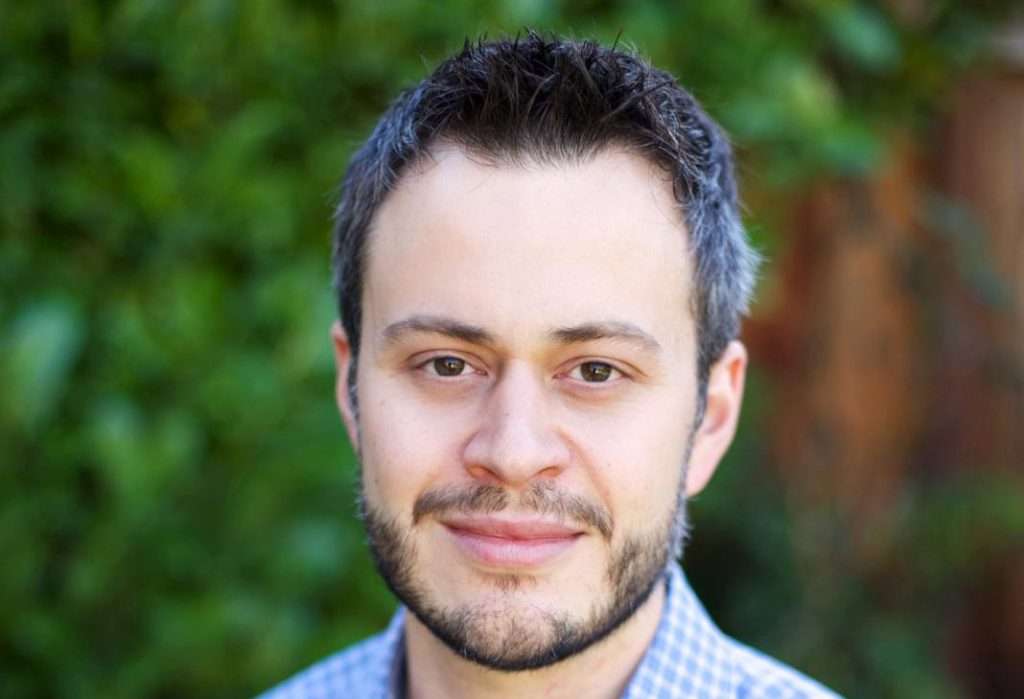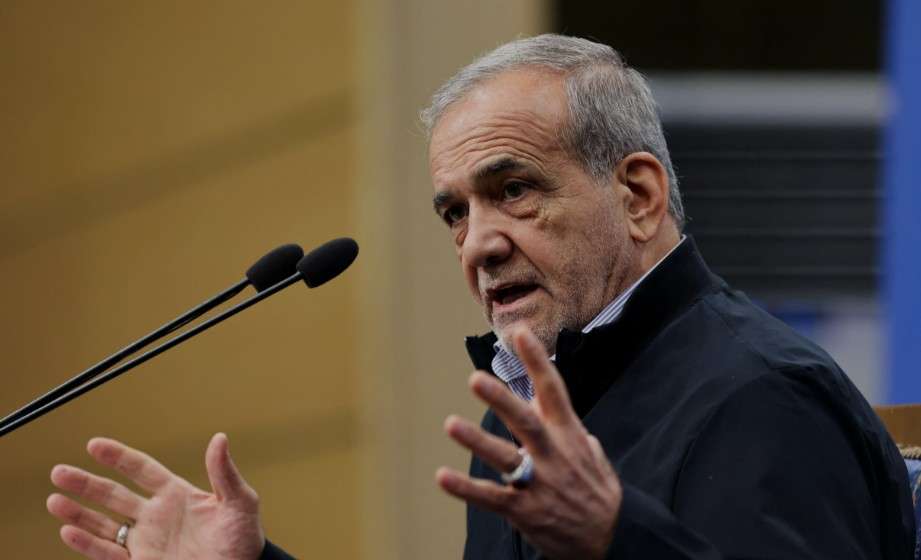Israel-Iran truce masks looming disaster in the Gulf, analyst warns

While U.S. and Israeli leadership bask in their self-proclaimed “victory” against Iran following a ceasefire that Donald Trump cajoled both sides into, the aftermath could threaten the very survival of the Gulf States, warns one of the region’s top analysts.
In an exclusive interview with Maghrebi on July 8th, Giorgio Cafiero, the CEO of Gulf State Analytics, predicts a spiraling crisis in the region following Israel’s attack on Iran on June 13th, which unraveled the months of nuclear negotiations between Tehran and Washington.
Trump, who initially preached peace in the region, entered the U.S. into Israel’s war with Iran on June 22nd, dropping bunker buster bombs on major nuclear facilities in Iran. Forty-eight hours later, after Iran’s pre-warned and anticlimactic retaliatory strikes on an American installation in Qatar, Trump announced a ceasefire between Iran and Israel.
On June 24th, the American President took to Truth Social to declare an end to the so-called “12-day war,” hailing his intervention as a masterstroke of diplomacy and exulting that the conflict “could have destroyed the entire Middle East—but it didn’t, and never will!”
Yet the mood is less effusive in the Arab capitals—even among those who have long viewed the Islamic Republic as an enemy. They now share a fear held by many analysts that Trump’s ceasefire is far too opaque and precarious to yield conclusive stability in the region.
There might be a game of cat and mouse where the Iranians try to hide their nuclear activities, and then periodically these bombings take place.
What is more likely, says Cafiero, is that Iran will now feel a greater need than ever to develop its nuclear programme, moving away from transparency, as it views deterrence as the only way to shield against external hostilities.
“There is bottom-up pressure from the population on the government to take a much more hardline stance toward the U.S,” explains Cafiero, “There are growing calls to pull Iran out of the NPT [Nuclear Non-Proliferation Treaty] and to race for the nuclear bomb.” If this plays out, the reality of frequent Israeli and American strikes on Iran seems inevitable.
“Put simply, there might be a game of cat and mouse where the Iranians try to hide their nuclear activities, and then periodically these bombings take place…Israeli-Iranian hostilities might become a new normal in the Middle East.”
On July 2nd, Iran’s president, Masoud Pezeshkian, ordered Iran to suspend co-operation with the UN’s nuclear watchdog. While on July 12th, Foreign Minister Abbas Araghchi clarified that Iran would continue cooperation with the IAEA, he stressed it would “take a new form,” including a reduction in transparency measures, limited access to certain nuclear sites, and greater oversight by Iranian authorities rather than international inspectors.
This impending cycle of instability spells disaster for the Gulf monarchies, who, mere months ago in May, touted a “new era” of peace and prosperity in the Middle East, punctuated by Trump’s lavish tour through Riyadh, Abu Dhabi, and Doha. The summits culminated in billion-dollar memoranda aimed at boosting investment and regional cooperation, all of which are now under threat.

The GCC countries have long strived to diversify their economies away from oil and gas by strengthening their non-hydrocarbon sectors like tourism, logistics, entertainment, port infrastructure, and so on.
“To do that,” explains Cafiero, “they need to lure in massive amounts of FDI [Foreign direct investment] and bring in many more tourists from around the world. None of this will be possible if there is a war in the neighborhood.” With the threat of risk premiums rising, investment decisions being delayed, and the region’s reputation on the line, “the collapse of a ceasefire would be a total nightmare scenario.”
A lack of investment is not the only concern for the region. The Gulf Arabs, especially Saudi Arabia, which has tussled with the Iran-aligned Houthis in the past, are nervous about renewing a war that could trigger new missile strikes on its territory, from Iran or its backers.
For the UAE as well, the stakes are enormous. With its gleaming skyscrapers and booming tourism sector, “it would only take one or two missiles to completely undermine the whole concept of Dubai as an oasis of peace and prosperity,” not to mention send its 88% immigrant population fleeing.
While many analysts, including the Head of Research at the Gulf Research Center, Dr. John Sfakianakis maintain that a “direct Iranian strike on Gulf assets remains unlikely,” as “Tehran has little incentive to provoke U.S. military retaliation by attacking third-party oil installations,” Cafiero spotlights that the Houthis have presented themselves as the vanguards of the axis of resistance, and remain a significant threat to the Arab monarchies.
The 2019 and 2022 Houthi attacks on Saudi Aramco and Abu Dhabi, respectively, were wake-up calls to the Gulf States about the risk that a cornered Iran posed to the region. This threat has since intensified, considering that the Houthis have reportedly figured out how to produce some crude missiles and drones indigenously. which means a weakened Iran is no guarantee of safety.
Where they once condemned Barack Obama in 2015 for seeking rapprochement with the Islamic Republic under the JCPOA [Joint Comprehensive Plan of Action], on June 13th, when Israel launched strikes against Iran that disrupted nuclear talks with the U.S., all six monarchies were among the first in the world to fiercely condemn the attacks.
These careful overtures towards Tehran have thus far shielded the Gulf states from attack, but risk being undermined if the situation escalates, forcing them to engage in a tenuous balancing act of supporting Washington while not angering Iran.
Other than direct attack, Cafiero stresses an often overlooked vulnerability that the Gulf Cooperation Council (GCC) states have long dreaded. Along the southern coast of the Gulf, in the Iranian port city of Bushehr, sits an Iranian Nuclear reactor.
“There are no rivers in these desert countries,” Cafiero highlights. “If there’s some sort of incident, whether it’s a man-made or natural disaster at that facility, and the waters of the Gulf get contaminated, the GCC states that depend on desalination would be facing a very, very serious set of problems.”
Faced with such existential threats, their most viable option may be to quietly mediate.
On July 4th, the Saudi Defense Minister, Prince Khalid bin Salman, met with Trump in Washington for talks on de-escalation, with many GCC states following suit with similar diplomatic efforts.
The UAE, in particular, which is the only GCC state that has normalised diplomatic relations with both Israel and Iran, could play a “unique Emirati bridging role,” according to Cafiero. Whether Tehran and Tel Aviv will be responsive to such dialogue is less certain, but the Gulf has no option but to try.
Al Jazeera/ AGBI/ Anadolu Agency/ Maghrebi/ Le Monde/ Gulf Research Center/ Axios
Want to chase the pulse of North Africa?
Subscribe to receive our FREE weekly PDF magazine














